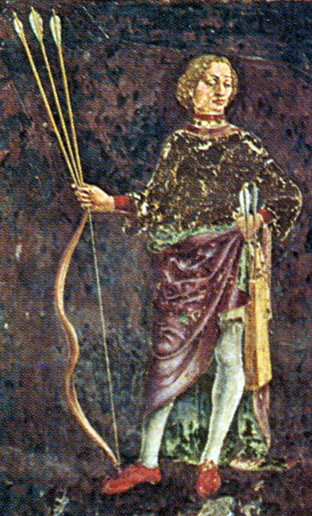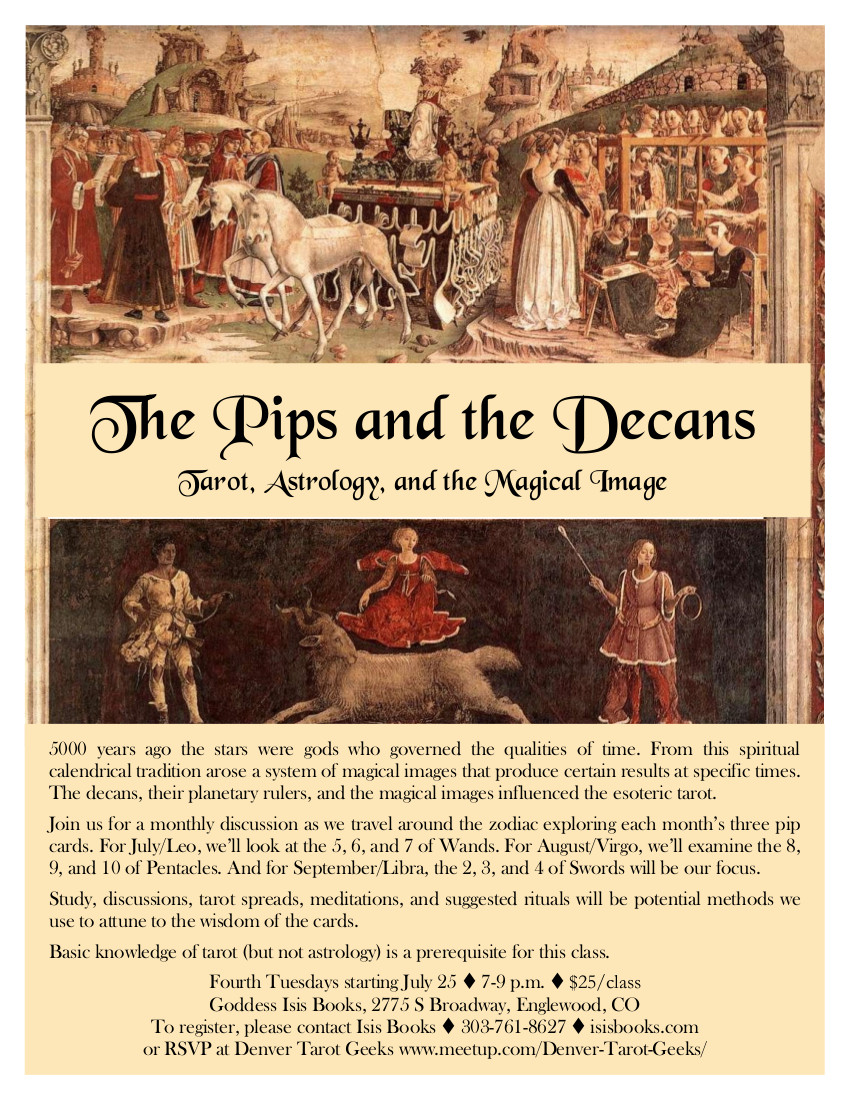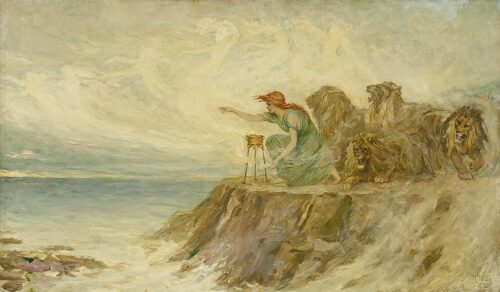Welcome to the Tarot Blog Hop!
An international group of tarotists are all writing on the same topic and then linking to each other so that the reader can hop from one blog to the next, seeing all the permutations and facets that the topic inspired in different writers. Aisling the Bard of Tarot Witchery proposed the summer solstice topic of the battle between the Oak King, god of the waxing year, and the Holly King, lord of the waning year, who are two aspects of the same being. She asked us to explore and explain the concept of duality.
PREVIOUS | MASTER LIST | NEXT

In the story of the Oak King and the Holly King, the Oak King is sacrificed on the summer solstice. The Oak King rules the waxing half of the year, the period from the time of greatest darkness, the winter solstice, until the time of the greatest light, the summer solstice. The Holly King rules the waning part of the year from the time of greatest light until the winter solstice of greatest darkness. Each character, the Oak King and the Holly King, is awarded one victory during the year. The Oak King’s victory comes at the summer solstice whereas the Holly King’s victory occurs at the winter solstice. Perhaps ironically, victory does not lead to a period of sustained power but rather to the beginning of the opponent’s rise to power. So the summer solstice, the longest day of the year and the height of the sun’s power, while the victory of the Oak King also marks the end of his reign. The newborn Holly King rises through his cycle of growth into his own victory-slash-demise at the winter solstice.
The tarot card for the Sun’s highest power as it waxes towards its victory and demise at the summer solstice is the Ten of Swords. The Ten of Swords correlates to the final decan of the sign of Gemini, the sign of the Twins. This decan is ruled by the Sun according to the Chaldean order of planetary rulerships, the system that was utilized by the Golden Dawn as they developed the correspondences for the pip cards. Utilizing the alternate method, the triplicity rulerships, the third decan of Gemini is ruled by Saturn. Austin Coppock in his book on the decans, 36 Faces, and his classes on the decans of the zodiac, points out the irony of these twin rulers. The Sun represents light, growth, success, and power. Saturn symbolizes darkness, endings, old age, and decline. Gemini is the sign of the twins and yet it is positioned in the cycle of the year not at the equinoxes, the time of balance, but leading into the solstice, the time of the clear victory of light over darkness. These twins of Gemini are not the equally paired co-conspirators. They are not mutually supportive. Rather they refer to the primal competition of brothers, such as Cain and Abel or Castor and Pollux. The brother battle symbolism is one of overcoming, of destruction, of solitary victory. The Ten of Swords engages the symbolism of defeat not of victory. With complete achievement there is nowhere else to go and having reached the end we can only translate worldly achievement for spiritual apotheosis. The trophy we win immortalizes success while taunting us with our inability to repeat our victory.
The princes Castor and Pollux were born mortal, but were rewarded due to their kindness and generosity with immortality at the time of their death. In order to appease the Fates, only one twin could be in heaven at a time, while the other was relegated to the underworld, each switching places with the other daily. Castor and Pollux were considered to bring favorable winds to shipwrecked sailors, an interesting interpretation for the Ten of Swords, the prone figure at the edge of water, pierced by swords which represent the element air.
The symbolism of the brother battle often pits the mortal against the immortal. But why does the Ten of Swords emphasize loss, mortality, and defeat? The answer lies in the idea of sacrifice and resurrection. Victory is rarely won without sacrifice. We must choose to destroy limitations that we impose on ourselves. We destroy the mortal to achieve immortality. Swords represent the element air, the mind, beliefs, and ideas. They represent definitions. It is through the sacrifice of our own beliefs that we rise above those beliefs transforming ourselves and achieving immortality. The Ten of Swords takes us as far as the mind can take us. It is both belief in ourselves that produces victory and it is the mental constraints that prevent victory. The Ten of Swords represents the immortal victory achieved when the mind is destroyed.
The Picatrix magical image for this decan is a man clothed in mail, with a bow, arrows and a quiver. He represents division of labor, boldness, audacity, honesty, and consolation.
To engage the magic of this image we recognize our own internal divisions, downsize the parts of us that don’t produce, and promote the winners to the next level.
***
If you are interested in learning more about how the meanings of tarot pips derive from the astrological decans, please check out The Decans and the Pips for the Denver Tarot Geeks on Meetup.
PREVIOUS | MASTER LIST | NEXT










Thank you for the history & story about the Kings, I knew of it but this explained it in a nice way that made sense.
Loved pulling Castor and Pollux in!
Loved your post, Joy, thank you! Emphasising the birth of the Holly King at the Summer Solstice never made sense to me, but acknowledging that in the Oak King’s victory is his own decline, now that makes sense! Fascinating perspective on the Ten of Swords, too 🙂